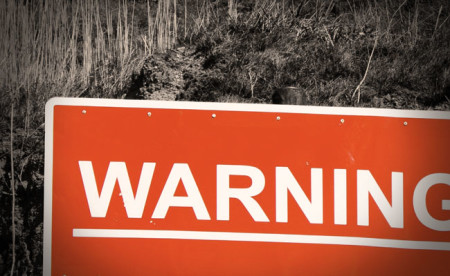
Liability is a funny thing. It forces changes in behavior with an eye towards protecting your business, your family, and your life. The fact that America is a litigious society is well documented.
The fact that ambulance chasers and private citizens run to seek compensation — with dollar signs in their eyes — for a fender bender or slipping on a grape in a store, is troublesome to say the least.
Do we seek compensation because we have something lacking in our own lives, or because we are opportunistic? Or is it because we have just been conditioned to behave a particular way?
I am surprised we haven’t sought money from the heavens for the tornadoes and hurricanes that ravish our country; it’s probably because they don’t know where to serve the subpoenas.

By way of background, I work in the insurance industry and have also graduated from The University of Tampa’s business school twice. I became attracted to the insurance industry as a young law student in the late ’80s who held clerkships in a few “ambulance chasing firms.” After becoming disheartened by the business of personal injury law and what I saw as an “injury industry”, I turned to the insurance industry for my career path.
I think that I idealistically bought into an idea of insurance as a source of “wholeness” that would put the pieces of someone’s life back together, but that the person would not “profit” from that loss. I absorbed this notion that an indemnity payment or recovery was designed to make someone “whole” again after an accident, an injury, or some other type of loss.
But before you even get to the idea of how to combat the idea of profitting from a loss, there are a number of fundamental flaws in the philosophical notion of “wholeness.” First, “wholeness” simply is not always realistic; some things simply cannot be replaced or mended, The actual or perceived inability to replace something of value will arguably cause more demand for unquantifiable “pain and suffering” damages. Second, insurance companies are in the profit making business, too and replacement cost, however defined for a particular type of loss, may not leave a person feeling very “whole,” My third point regarding the flaw in the concept of “wholeness” is that people often have an expectation gap regarding what insurance policies will cover. Policyholders, even sophisticated business policyholders, can experience an expectation gap regarding coverage at the time of a loss despite policy language that defines the basis for recovery. Finally, when faced with the actual loss, emotions run high, certain hopes are dashed and the apparent “opportunistic” behavior you mention above kicks in.
Especially in our current economy, the profit motive can kick in pretty swiftly. I think that some of this arises out of pure greed, but some of it stems from fear of what may happen in the future due to a particular injury or loss. And some of the apparent profit motive is based on survival. For example, I’m quite certain that some people who would never have brought an employment lawsuit against an employer arising out of termination in the 1990s or early 2000s may feel compelled to do something for recovery if they believe they will be unemployed for a long time or that they cannot replace their job at all.
I’m not sure where this leaves our litigious society, our insurance companies, or our insurance premiums as consumers and business owners in the long-term. As an insurance program manager, my job is to somehow balance all of the competing interests in any given situation for a variety of stakeholders. What I personally hope for every day are a few “real conversations” that deal with some of the realities I mentioned above. And I hope that the relentless “strategic” posturing where everyone is an advocate/”lawyer” and no one is a mediator/”problem solver”, will be replaced with a considerate positioning of issues that accepts that alignment will be imperfect, but that resolution can take place before legal costs outweigh loss payment and recovery costs.